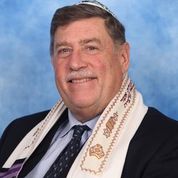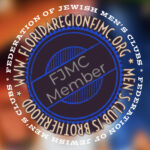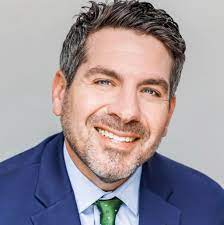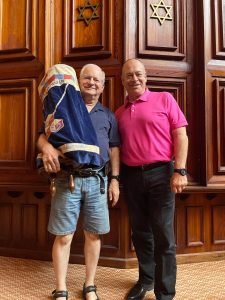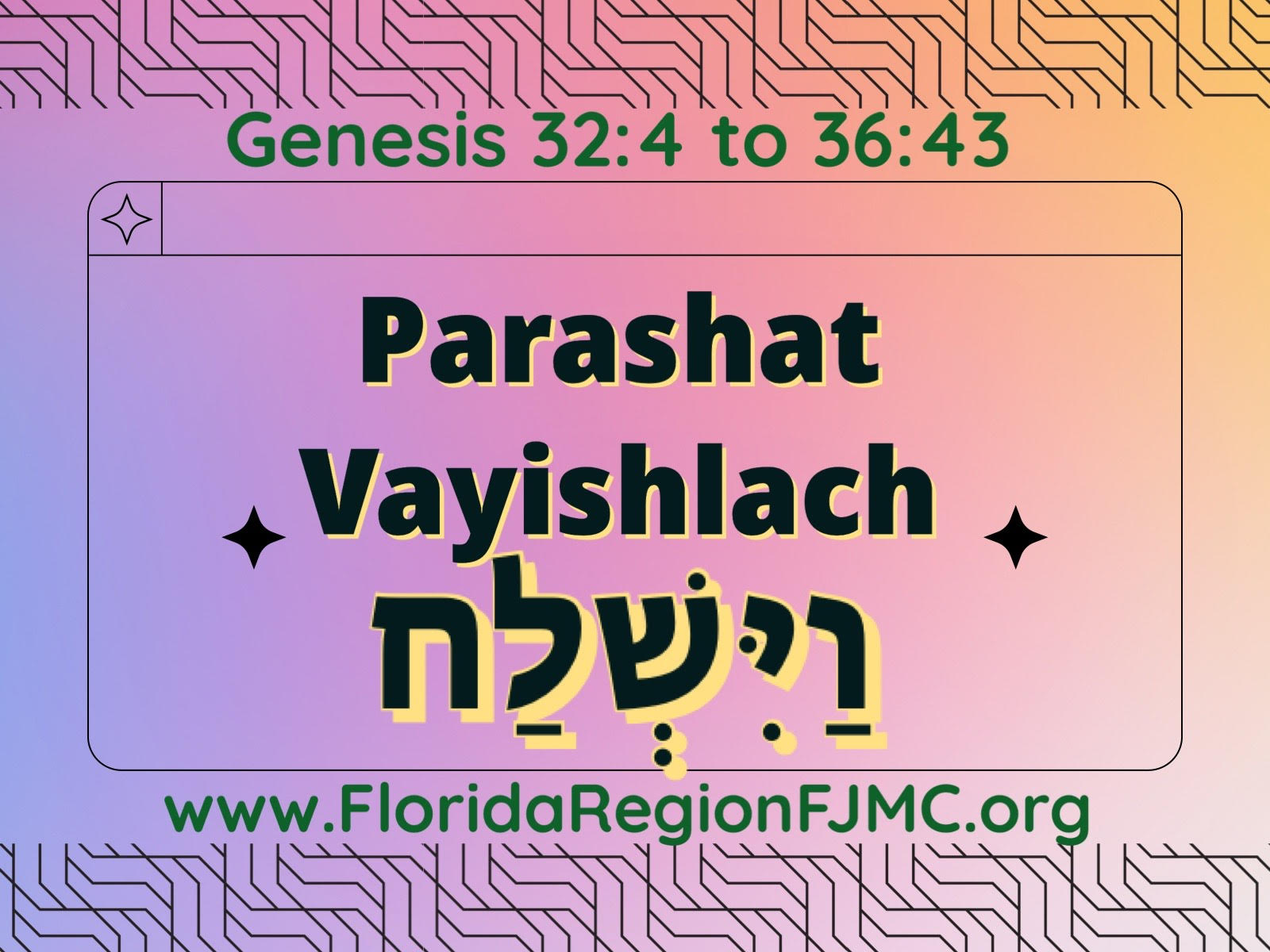
When you Choose Shabbat, you choose to learn that every Shabbat is different and special. This week I learned that Parashat Vayishlach (וַיִּשְׁלַח), the eighth weekly Torah portion in the annual cycle of Torah readings, is tied with Parashat Noach for the most verses of any weekly Torah portion in the Book of Genesis (Parashat Miketz has the most letters; Parashat Vayeira has the most words). According to Wikipedia, Vayishlach – Genesis 32:4 through 36:43- contains 7,458 Hebrew letters, 1,972 words, 153 verses and 237 lines of the Torah Scroll.
Vayishlach (וַיִּשְׁלַח), translated as “and he sent“, is a story that puts Game of Thrones to shame. It is a tale of the supernatural (Jacob wrestles with an Angel), tension and reconciliation between brothers (Jacob and Esau), rape (Dinah) and revenge (Dinah’s brothers sack the city of Shechem), death and new life (Rachel dies in childbirth to Benjamin).
Rabbi Michael D Klein of Temple Torat Emet offers his insights on this week’s Torah reading Vayishlach for Shabbat December 14, 2024 aka the 13 Kislev 5785:
“How does one confront a sibling who is hostile? This is the overriding question that Jacob must face in re-encountering his brother Esau, who, he rightly suspects, is still hellbent on revenge for not receiving their father’s blessing many years earlier. Jacob is injured due to his wrestling encounter with the angel. He formulates a plan. He attempts to placate his brother by sending angels bearing generous gifts but also warning Esau against any violence. He divides the camp so that if Esau attacks, at least part of the people will escape. He spends the entire night praying for G-d’s intervention. He then, humbly, confronts his brother in the hopes that the two may reconcile. Esau exhibits his merciful side but also metaphorically represents the future Roman Empire who will benefit in much later times from a future conflict between Maccabean brothers as a postscript to the story of Chanukah.
What lessons can we learn from the narrative of Jacob and Esau? Is it possible for brothers with totally different moral compasses to overcome their anger toward each other non-violently? Do Jacob’s actions provide us with a template for dealing with severe sibling rivalry? On the surface, these courses of action represent contradictory messages: aggression versus servility, faith in G-d versus practical preparation, desire to reconcile versus desire to separate. All are possible outcomes. Fortunately, with Hashem’s help, Yakov is able to achieve a successful outcome and shows gratitude to G-d by arriving at Shechem, purchasing a plot of land and building an altar of worship and thanksgiving to G-d. We can only hope that we never deal with such issues with our siblings but from this narrative we understand that such angst is an ancient story. We pray that we have the courage and faith to resolve such family issues in a manner that doesn’t cause permanent damage to our family and our relationships with our siblings.
Questions to Consider:
- What is the numerical value of the Hebrew word “Garti” (I sojourned)? Why is this important in Yakov’s words to Esau?
- Why did the angel who wrestled with Yakov have to leave at dawn?
- Does the fact that Yakov will face his brother Esau while injured teach us anything?
- Why does Esau insist on accompanying Yakov? Why does Yakov refuse his offer?
Rabbi Michael D. Klein attended Yeshiva College of South Florida and served as Torah Reader, Hebrew teacher, Chazzan and spiritual leader of various synagogues throughout South Florida. In January 2015 he became Ritual Director, Bnai/Bnot Mitzvah instructor and 7th grade Hebrew instructor for Temple Torat Emet of Boynton Beach. In October 2019 he was accepted into an accelerated track and received his smicha from Yeshiva Adath Wolkowisk and has been the Rabbinic leadership of Temple Torat Emet since August 2020. In September of 2022 he was appointed Rabbinic and Spiritual Advisor of the Florida Region of FJMC.
Choose Shabbat; choose to celebrate, to light candles, sing songs and learn a little Torah.
This moment of Jewish learning is brought to you by the Florida Region of the Federation of Jewish Men’s Clubs (FJMC). We serve the needs of affiliated Men’s Clubs and Brotherhoods throughout the State of Florida. Learn more about the FJMC Florida Region and our growing network of Jewish Men’s Clubs and Brotherhoods at: www.floridaregionfjmc.org and please visit & LIKE our Facebook Group at: www.facebook.com/FloridaRegionFJMC.
The FJMC is a confederation of over 200 Jewish Men’s Clubs and Brotherhoods representing over 20,000 members across the United States, Canada, Latin America, and beyond. Learn how YOUR Jewish Men’s Club or Brotherhood can affiliate with the FJMC at: https://fjmc.org/for-clubs/affiliating-with-the-fjmc/.




